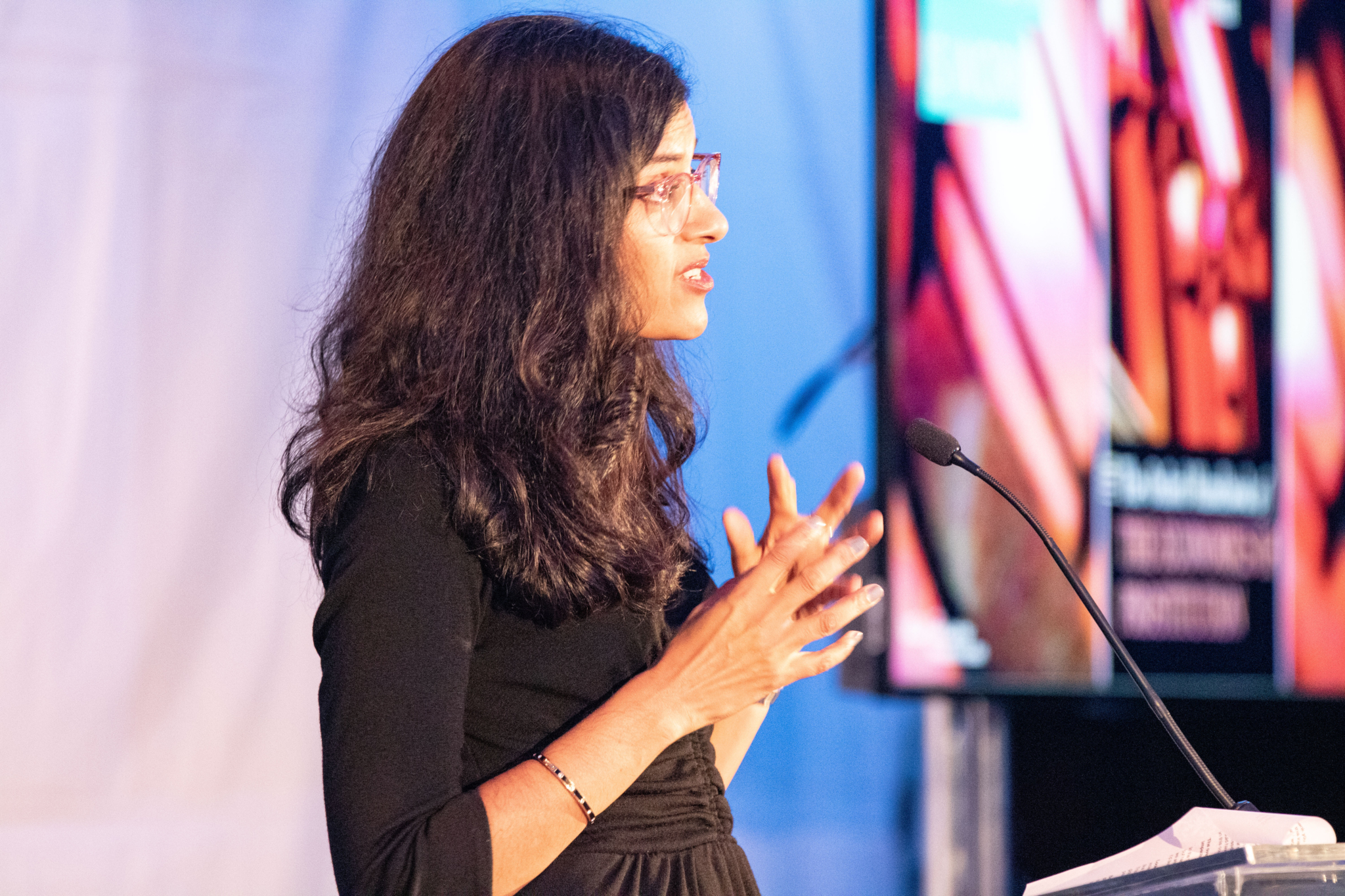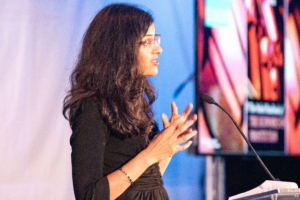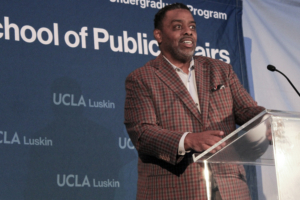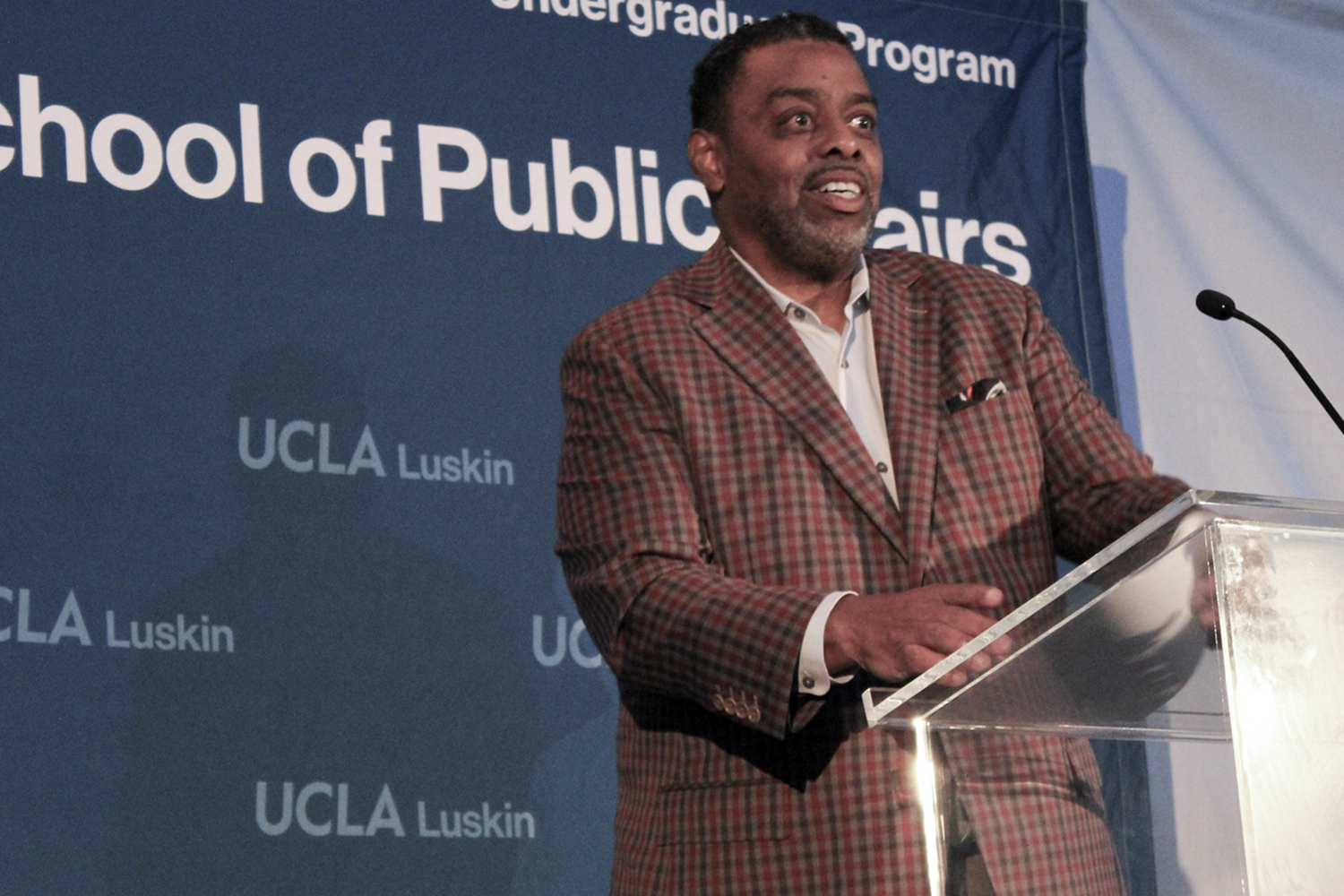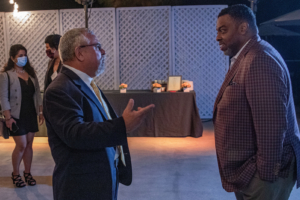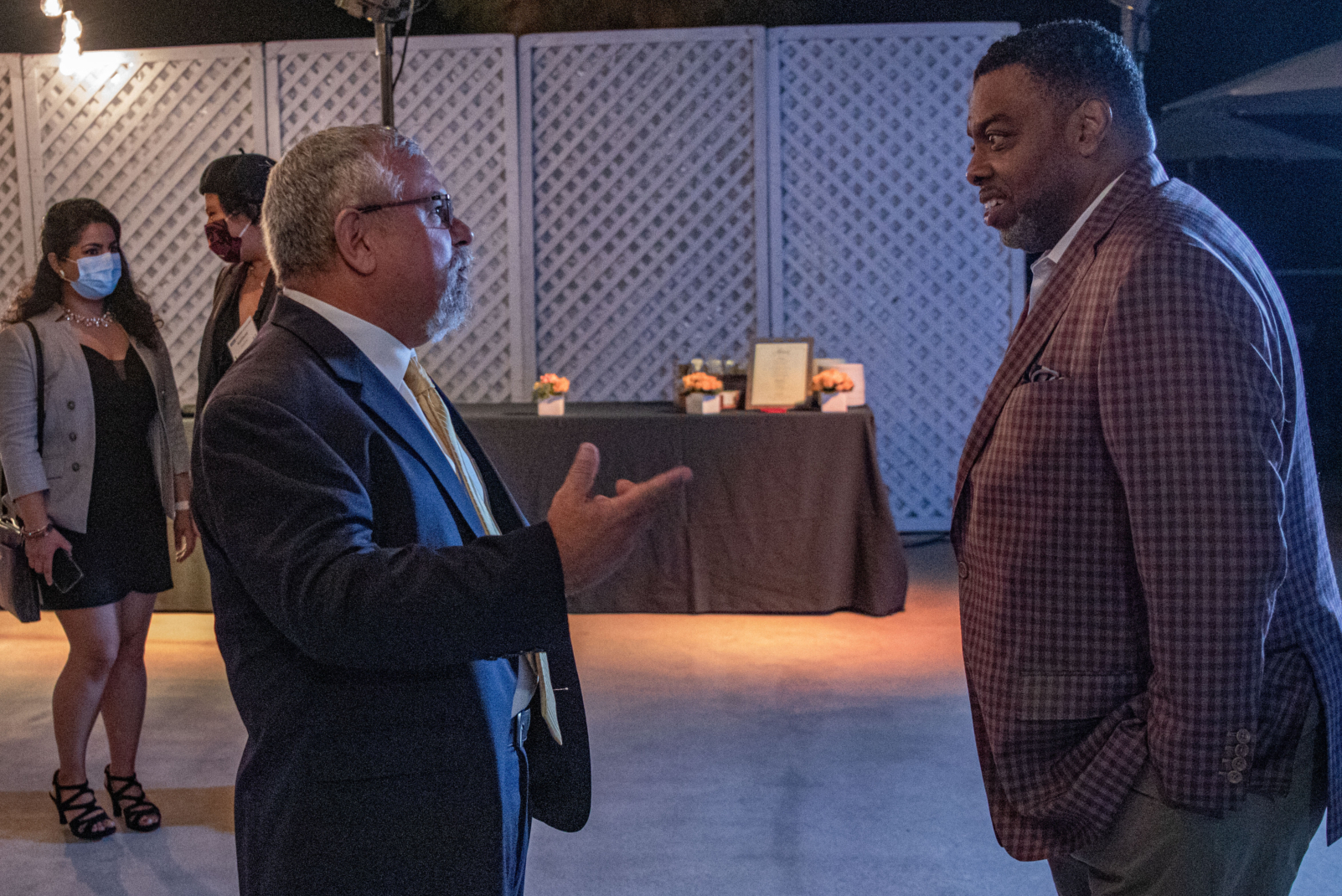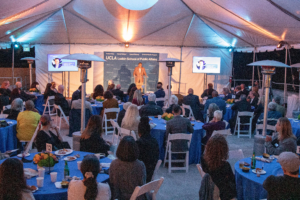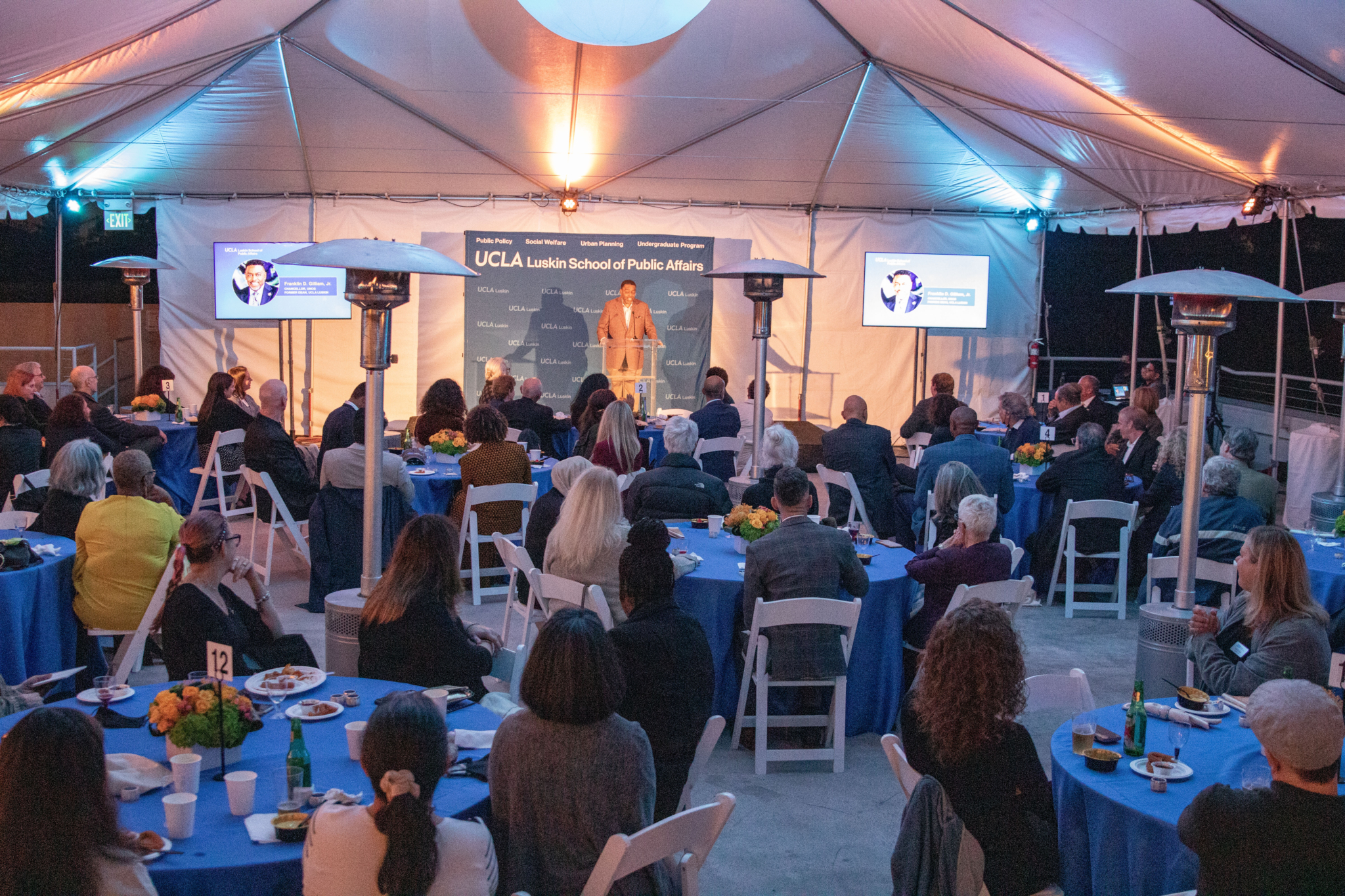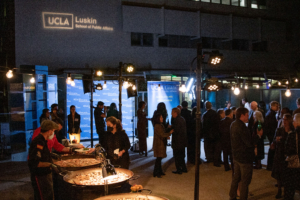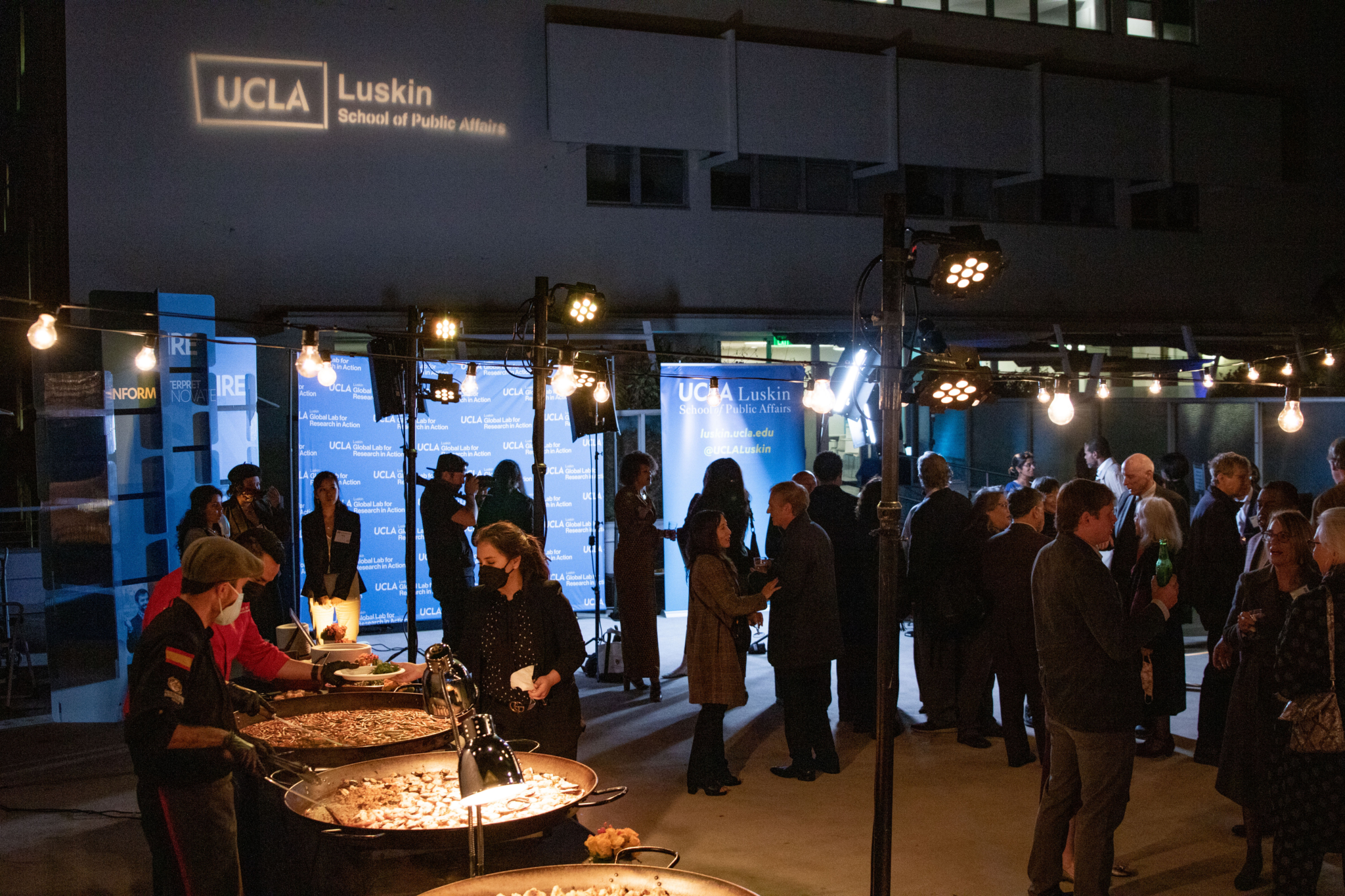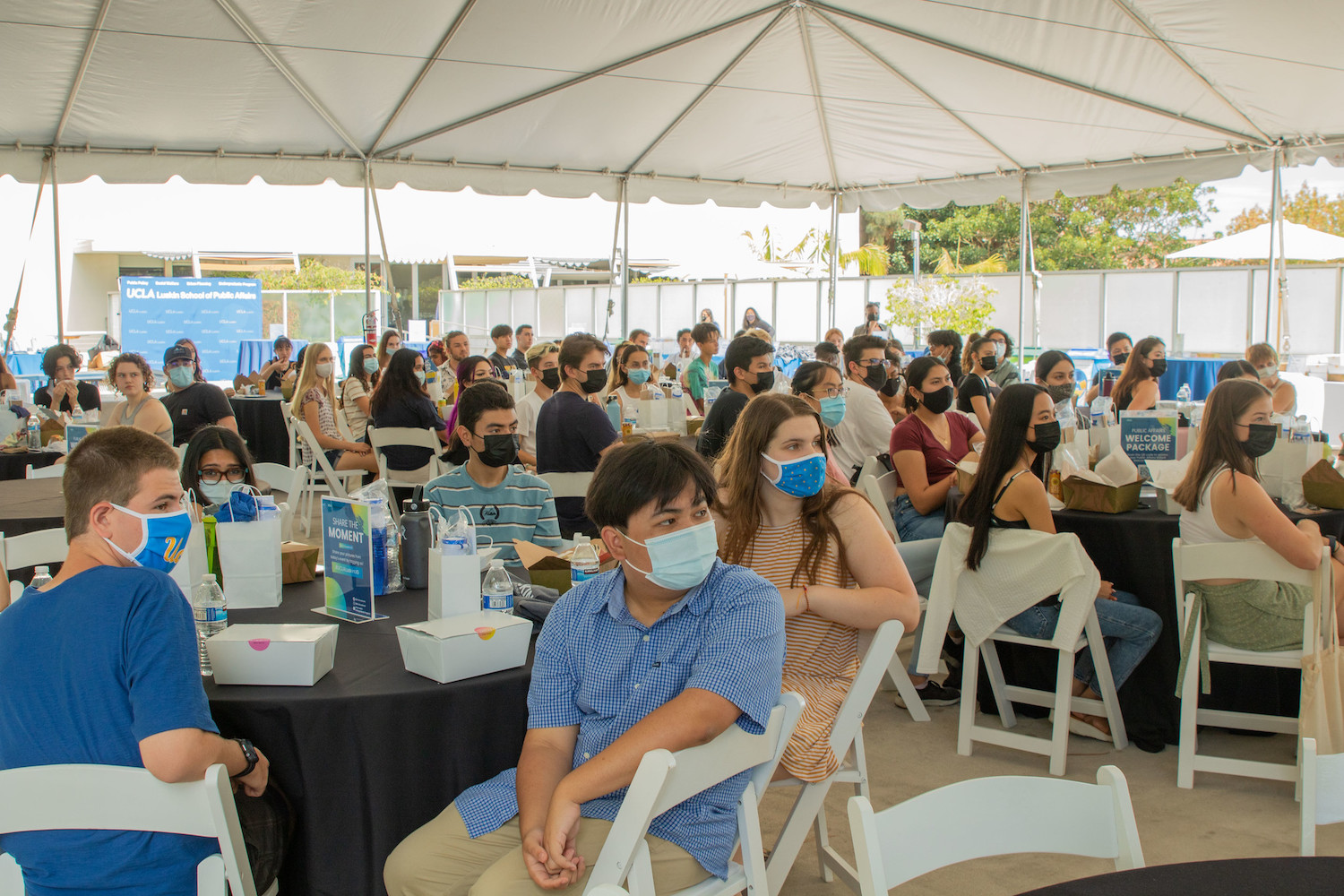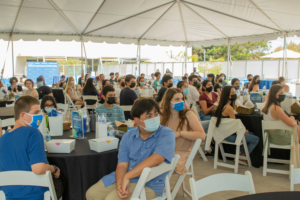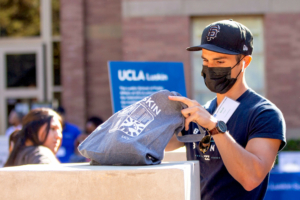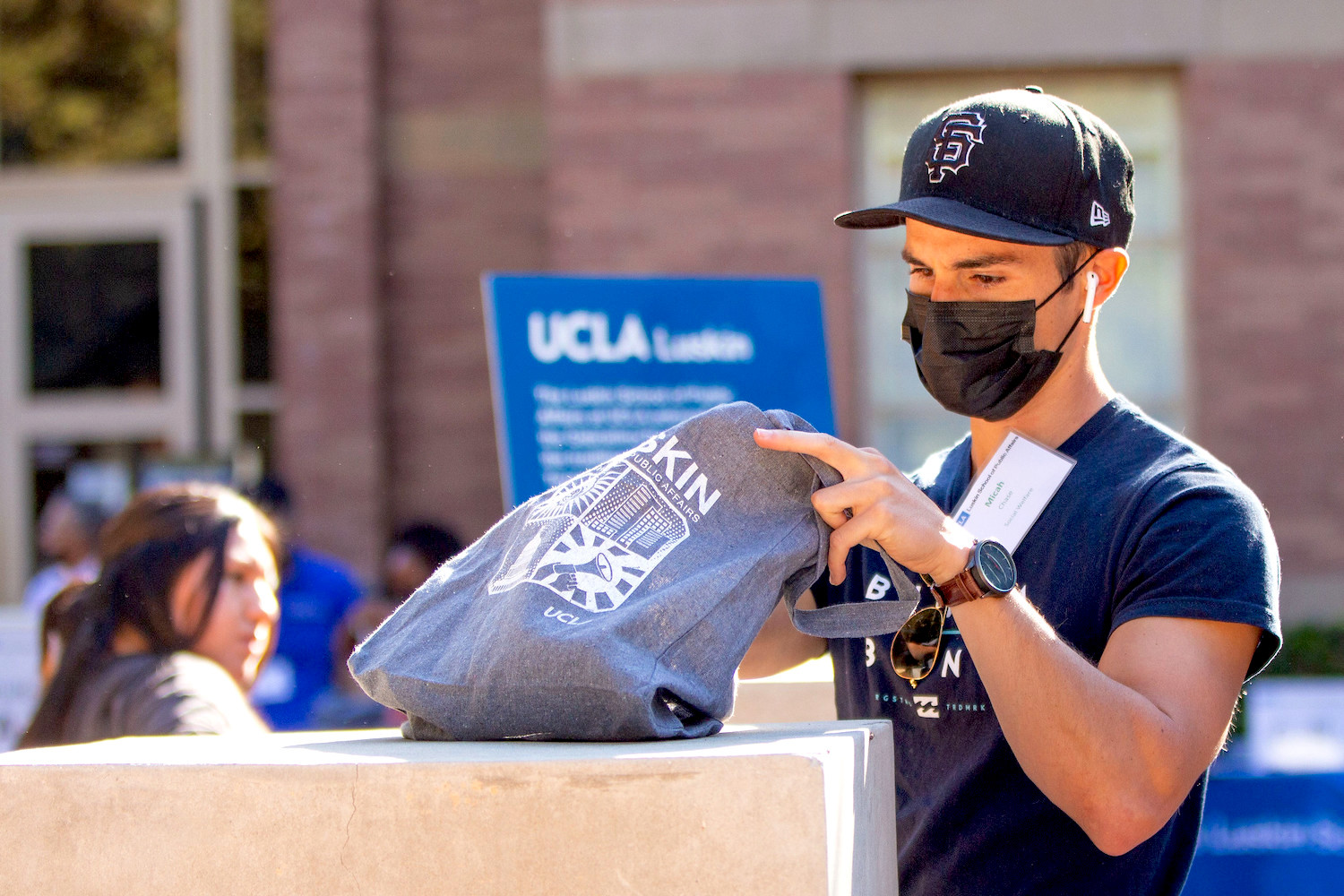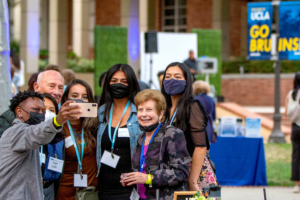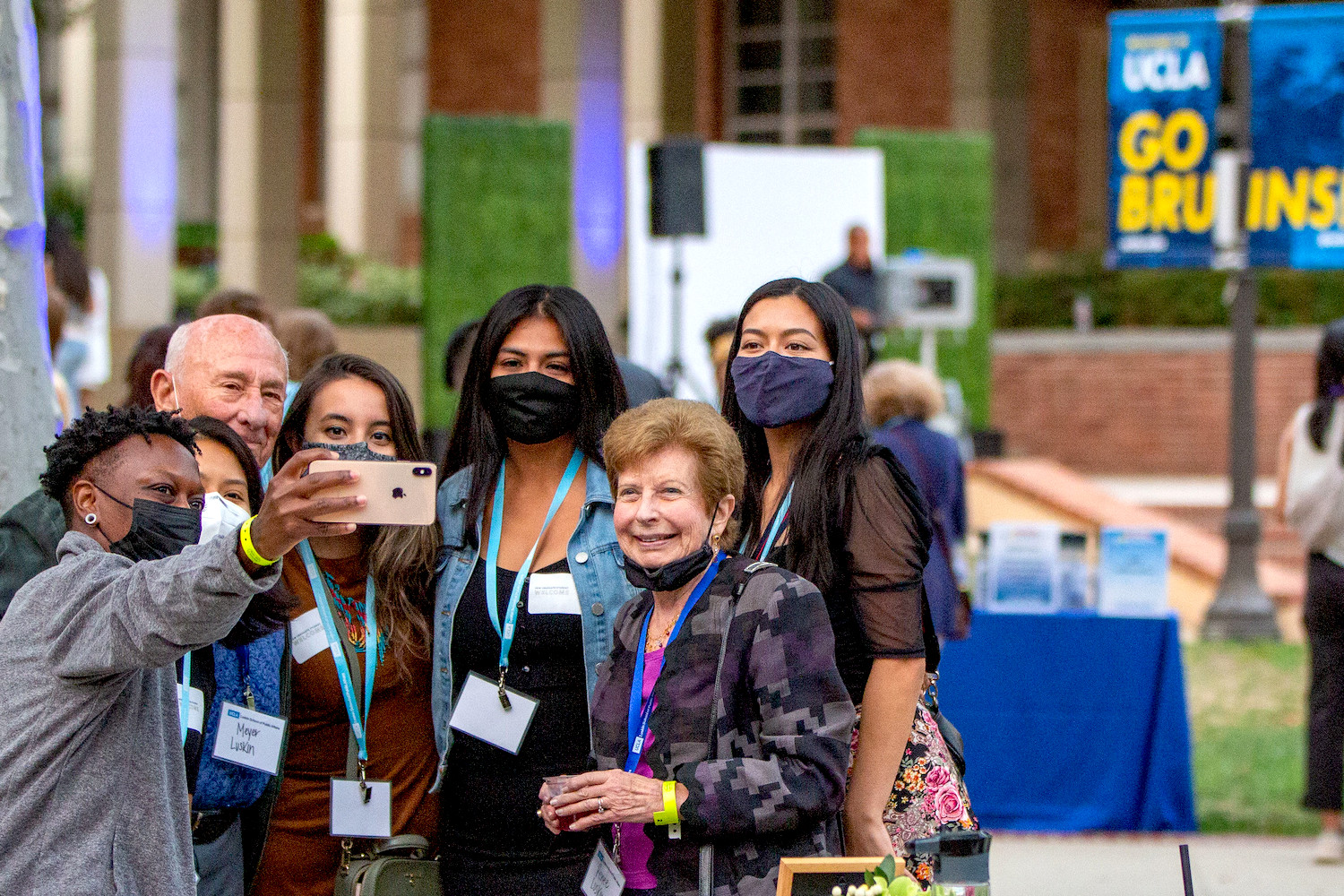By Les Dunseith
California Assembly Speaker Anthony Rendon spoke about California’s policy priorities during remarks Jan. 28 when the UCLA Luskin School of Public Affairs opened its third annual Luskin Summit.
As one of the state’s top political leaders, Rendon outlined his legislative priorities for 2021 — police reform, climate change and broadband internet access — as the first presenter in a virtual series of discussions set to continue in February, March and April.
Dean Gary Segura said Rendon was invited to open the Summit in part because his background and political views are of interest to UCLA students, faculty and alumni. “In his career as educator, child well-being advocate and policy innovator, Rendon represents the best values of the Luskin School and our mission.”
Addressing the COVID-19 pandemic, Rendon, a Democrat, said Californians are already seeing benefits from the election of Joe Biden as president.
“One thing we can be sure about is the importance of having a plan. Throughout 2020, when COVID first appeared on our radar, we did not have a national plan,” Rendon said. “Biden came in, and he released a plan in his first week.”
He noted the tension that existed on many issues between the Trump administration and California officials, which led state leaders to work independently of the federal government on issues such as immigration and climate change.
“With Biden in the White House … I think we’re going to have a little bit more help and more opportunities to work with this administration instead of against it,” Rendon said.
As a legislative leader, Rendon has stressed inclusion and diversity, and he noted that more women hold committee chairs today in the state assembly than at any time in the past. He also pointed to his appointment of the first Muslim, Imam Mohammad Yasir Khan, to serve as assembly chaplain.
His leadership style emphasizes sharing of responsibility, Rendon told the online audience of more than 100 scholars, social services advocates, philanthropic and public leaders, and other interested parties.
“I believe that the assembly works best when the individual members of the assembly, particularly the chairs, are able to utilize their skills, to utilize their life experiences,” he said. For example, Rendon said he has sought to embolden the chairs of legislative committees related to health and education whose expertise exceeds his own. “That’s been my philosophy, that I can be the best leader if I’m enabling others to do their jobs.”
In terms of legislative priorities, Rendon acknowledged that California lawmakers “fell short” on police reform in 2020, including failing to pass a bill that would have changed the disciplinary processes for police officers.
“We need to change those processes so that public safety is not just about officer protection,” he said. “Of course, we want to make sure that we’re not endangering the people we trust with patrolling our streets and neighborhoods, but we also have to make sure that they are careful.”
Rendon said California is already a national and international leader in dealing with climate change, but more work can be done.
“We need to ask if our climate change actions benefit disadvantaged communities,” he said, noting that his assembly district includes some of the most densely populated areas in the nation. “Southeast L.A. communities have around 17,000 people per square mile, but we have severe park shortages.”
Parts of his district were once farmland, but when they were developed for housing, the emphasis was placed on building high-density apartment dwellings without retaining open spaces. “Parks and vegetation are really important ways to reduce the heat island effect that drives warming in urban communities,” Rendon said.
His third legislative priority for 2021 also focuses on disadvantaged communities. In the past, discussions about a lack of broadband internet access centered around rural communities in the extreme north and south of the state.
“When COVID happened and when folks started having to go online for schooling, we discovered that there was a lack of broadband access all over the place,” Rendon said. “And those problems really started to manifest themselves, particularly in disadvantaged communities.”
He views the internet today as a critical public utility. “It’s not just a rich and poor issue; not just an urban and rural issue,” Rendon said. “It’s an issue that affects every single part of the state.”
In answer to a question posed by Segura about housing affordability, Rendon talked about visiting a neighborhood where he had once lived and noticing a flurry of housing construction. He reached out to a local official to praise the effort, only to be told to take a closer look at the upper floors of the newly occupied buildings.
“Those are all dark, right? Nobody lives there.”
In Rendon’s view, this example illustrates an ongoing problem in a state in which high-end housing continues to be built without enough pressure being brought on developers to balance their projects with affordable units.
When he first got to Sacramento, Rendon said, he noticed a disconnect in people’s minds between housing and homelessness. Over time, this misconception has slowly changed, in part because of “incredible data that show the number of people who would become homeless if they missed one month of pay, if they missed two months of pay.”
To further illustrate his point, Rendon noted that as assembly speaker he serves on the UC Board of Regents and the Cal State Board of Trustees. The statistics on housing scarcity among university students are staggering, he said, noting that many students can be found sleeping in their cars or couch surfing with friends from one night to the next.
“We know that housing and homelessness are linked,” said Rendon, whose 20 years of work in the nonprofit sphere often leads him to look for solutions in service delivery mechanisms. “I think if we’re going to solve the housing crisis, we need to address homelessness. And if we’re going to address homelessness, we really need to think about comprehensive services for homeless folks and for near-homeless folks.”
Additional information about the Luskin Summit, including previews of other sessions and a registration link, can be found online. Sponsors include the Los Angeles Rams, Gensler, the Weingart Foundation and the California Wellness Foundation. The media partner is ABC7 in Los Angeles.
In late April, the final event of Luskin Summit 2021 will be unveiling of the 6th annual Quality of Life Index, a project at UCLA Luskin that is supported by The California Endowment and Meyer and Renee Luskin under the direction of Zev Yaroslavsky, director of the Los Angeles Initiative. The survey asks county residents to rate their quality of life in a range of categories and to answer questions about important issues. Last year’s survey happened to coincide with the early stages of the pandemic.
Watch a recording of the keynote session:
